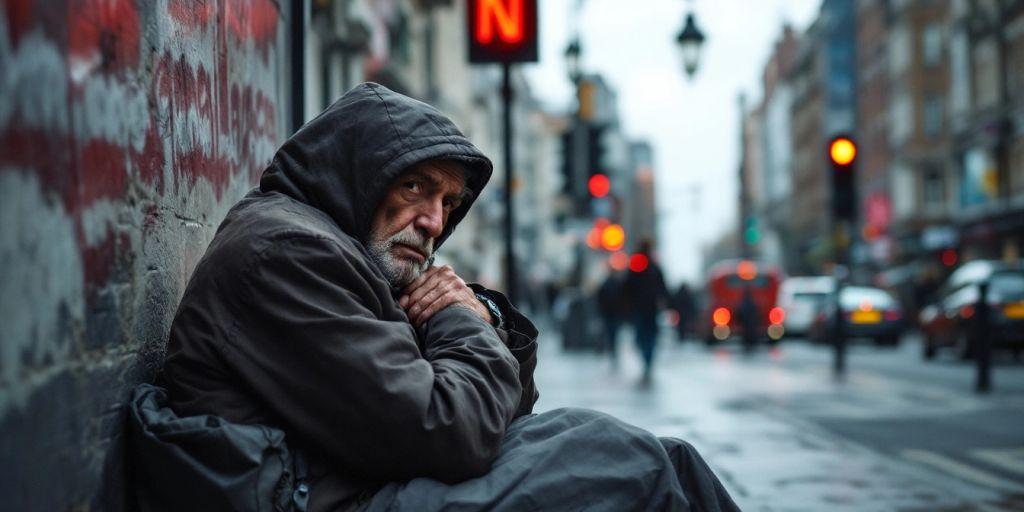The UK is facing a homelessness crisis, with recent reports revealing record-high figures and alarming trends in rough sleeping and temporary accommodation. Local authorities are struggling to cope with the rising demand, leading to significant financial strain and calls for urgent government action.
Key Takeaways
- Homelessness in the UK has reached its highest level since records began, with over 145,800 children in temporary accommodation.
- Local authorities spent £2.4 billion on homelessness services in 2022/23, more than double the amount spent in 2010/11.
- Rough sleeping has increased by 25% in the past year, with nearly 3,900 people counted as homeless on a single night in autumn 2023.
- The government plans to stop publishing statistics on homeless deaths, raising concerns about transparency and accountability.
Record Highs In Homelessness
According to a report by the National Audit Office (NAO), statutory homelessness has reached unprecedented levels, with 112,660 households in temporary accommodation by the end of 2022. This includes 71,280 households with children, marking a 20% increase over the past two decades.
Local councils are increasingly relying on temporary accommodation, often placing families in bed and breakfasts. The number of households in such arrangements has surged by 42% in just two years, with nearly 16,000 families currently in bed and breakfasts.
Financial Strain On Local Authorities
The financial burden of homelessness services is taking a toll on local authorities, with many spending up to half of their budgets on this crisis. The NAO reported a £204.5 million funding gap for temporary accommodation in 2022/23, leading some councils to consider issuing Section 114 notices, akin to bankruptcy.
The report highlights that government housing benefit rates have not kept pace with rising rental prices, pushing more families into homelessness. A quarter of households seeking homelessness support in 2023/24 did so after their private rental tenancies ended.
Rising Deaths Among The Homeless
In a troubling trend, deaths among homeless individuals in the UK rose by 12% in 2023, with at least 1,474 recorded deaths. The Museum of Homelessness reported a significant spike in deaths among rough sleepers, with 155 fatalities in the past year alone.
The government’s proposal to stop publishing statistics on homeless deaths has sparked outrage among advocates, who argue that this data is crucial for understanding and addressing the crisis. Experts warn that without accurate tracking, the plight of the homeless will remain invisible to policymakers and the public.
Calls For Urgent Action
Homelessness charities and local government representatives are urging the government to take immediate action to address the crisis. The Local Government Association has called for a ban on no-fault evictions and increased funding for affordable housing.
The Ministry of Housing has acknowledged the severity of the situation, stating that homelessness levels have skyrocketed and that families are suffering in temporary accommodation. They have committed to developing a long-term strategy to tackle homelessness, but many believe that more immediate measures are necessary to prevent further loss of life and suffering.
As the UK grapples with this escalating crisis, the need for comprehensive solutions and sustained investment in affordable housing has never been more urgent. The rising numbers of homeless individuals and families highlight a national emergency that demands immediate attention and action from all levels of government.
Sources
- Homelessness at ‘highest since records began,’ landmark report shows | The Independent, The Independent.
- The UK government aims to stop publishing stats on homeless people’s deaths – here’s why that’s a problem, The Conversation.
- Number of people rough sleeping double than when Tories came to power, Big Issue.
- ‘My state pension was £880 – and my rent was £1,000’: how a 70-year-old man became homeless in Britain | Homelessness | The Guardian, The Guardian.
- UK homeless deaths up 12% in a year, says monitoring project | The Independent, The Independent.






